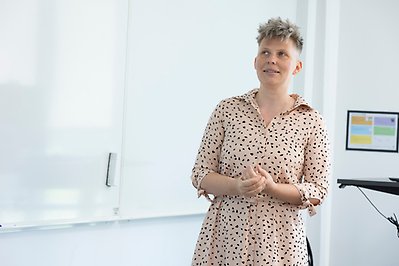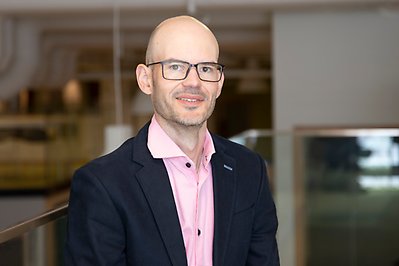Visiting researchers at the School of Health and Welfare
The School of Health and Welfare has a number of visiting researchers. Their role is to strengthen the research, contribute with new perspectives and increase collaboration with other national and international universities.

Julie Reed has established herself as a leading figure in implementation and improvement science. Over the last 15 years she has led a programme of research which seeks to understand how improvements can be achieved in complex health and care systems. Her research recognises that change is hard to achieve and that it requires behaviour change of many different people who need to work together to achieve collective impact. Julie Reeds’s interests lie in the development and utilisation of structured approaches to collaborative working to facilitate the achieve improvements in healthcare.
Julie Reed was instrumental in establishing the UK based National Institute for Health Research funded Collaboration for Leadership in Applied Health Research and Care (CLAHRC) Northwest London with Professor Derek Bell (£20 million, 2008-2019). The CLAHRC programme aimed to translate evidence into practice for patient benefit by academics working in partnership with geographically defined healthcare system along with patients and community members. The CLAHRC NWL partnership brought together over 50 organisations including academic, NHS, industry, third sector and community organisations, directly worked with over 2000 individuals, and covered a population of 2 million people.
Prior to working within the NHS and health services research Julie Reed trained as a chemist and biochemist. Her PhD (2006) was awarded in the intelligent design and development of novel cancer therapeutics. Julie Reed draws learning and scientific practice from these disciplines to underpin her approach to healthcare research and improvement.

Carl Macrae is Professor of Organisational Behaviour and Psychology at the Centre for Health Innovation, Leadership and Learning at Nottingham University Business School.
Carl Macrae is an applied psychologist specialising in the management, governance, regulation and improvement of safety and resilience in complex sociotechnical systems. His work primarily focuses on healthcare and transport, with a particular interest in the governance of artificial intelligence and autonomous systems. Carl Macrae's research uses a range of ethnographic and qualitative methods to understand the sociotechnical sources of risk, safety, reliability and resilience in critical systems; and the social, cultural and organisational processes involved in managing risk and enacting improvement.
Carl Macrae regularly advises regulators and policymakers on challenging safety and risk issues. He is the National Professional Advisor for Patient Safety at England's health and care regulator, the Care Quality Commission (CQC). Previously, his work led to a Parliamentary inquiry and subsequent establishment of England’s national, learning-focused safety investigation body for healthcare, the Healthcare Safety Investigation Branch (HSIB).

